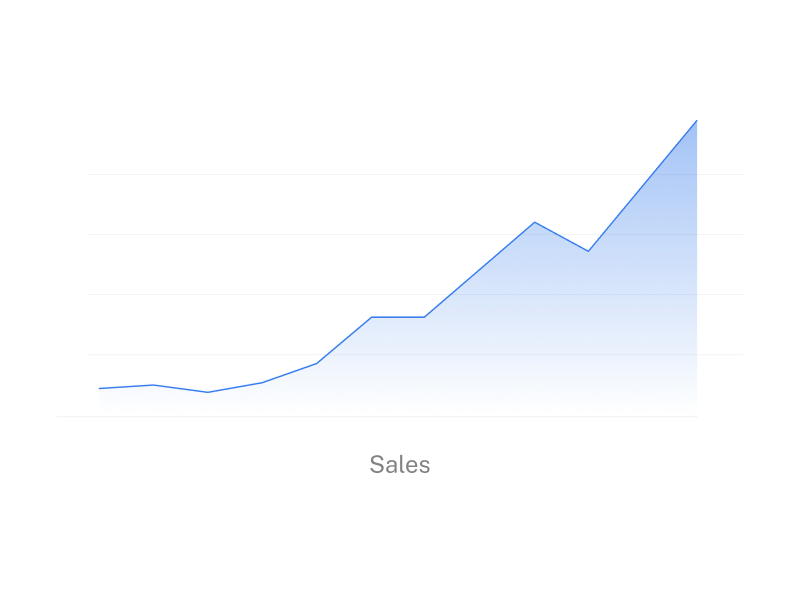81% of people use search engines to do research before making any significant purchase. This says a lot about how much money can be made with SEO.
Search engine optimization receives most of its accolades for free traffic, but business owners pay attention to revenue first, and it’s completely justified.
Today we’re going to look at 6 ways SEO can increase sales, directly and indirectly.
Let’s jump right in!
1) SEO does wonders for UX and conversion rates
Technical and on-page SEO goes in hand in hand with improved user experience.
With Page Experience Update announced in 2020, website owners have to pay extra attention to things like:
- Website navigation
- Page speed
- Mobile usability
It is clear that Google favors well-designed and stable websites, but how exactly does it affect your revenue?
The reasoning here is actually quite simple, websites that deliver great user experience not only benefit from SEO gains but from higher conversion rates as well.
The key takeaway: higher conversion rate = more leads = potentially higher revenue.
2) Search engine data helps to understand your customer and their intent
SEO is an intent-driven marketing channel that offers plenty of insightful qualitative and quantitative data.
Internal data from Search Console and other tools can reveal exactly what your prospects have been searching for. From that point onward, you can map it to your user journey or conversions and see what queries or search patterns bring the most value to your business.
Similarly, you can leverage external data (for example, Google Trends) to see how your industry is performing overall and specific searches in particular.
Here are a few examples of how you can leverage both of these data sets:
- You can take your best-performing queries and tailor your copy around them for higher engagement or conversion rates;
- With high-intent queries in mind, you can write content about pain points that your ideal customer experiences and ways to overcome them;
- You can cluster keyphrases into segments and build personalized landing pages to serve prospects with different characteristics or needs.
And all of this, in turn, will help you to stand in your customer’s shoes and deliver a superior marketing experience.

3) Search engine optimization helps to build trust & brand credibility
Your mere presence on the first page of Google already serves as a trust indicator for many consumers.
Now, if your website is often linked by high-authority blogs, journals, and influencers – this serves as an additional credibility signal.
The same goes for your online reviews, and Google reviews in particular, as they often show up in featured snippets and local searches.
The key takeaway: apart from generating traffic, SEO can have an indirect yet tremendous impact on consumers’ buying decisions and turn the odds in your favor.
4) Organic traffic sets a foundation for growth experiments
Every time you want to launch an A/B test to stimulate conversions or website usability, the sample size is always a valid concern.
You need lots of traffic to make sure that the effect you’re trying to see is statistically significant and not coincidental.
If you run tests on paid traffic, you’ll quickly realize that it’s too expensive and not sustainable.
Therefore, once your organic traffic is high enough – this is a perfect testing ground without extra expenses.
While not impacting revenue directly, you’ll be able to improve the usability or conversion rate of your website, which will increase sales in the long run.

5) SEO stimulates referral marketing and partnership opportunities
This point is particularly relevant for blog owners.
High-traffic blogs with a strong SEO foundation often receive a lot of commercial offers, such as paid referrals, partnerships, product reviews, link placements, etc.
The key takeaway: websites with solid traffic and domain get noticed much more by brands in the field and have a higher commercial potential.

6) In crisis and recession, SEO continues to bring results
In the times of economic downturn that we’re living in right now, companies are particularly hesitant to make marketing-related investments.
Meanwhile, costs associated with paid channels only keep growing.
Inflation, coupled with rising PPC costs, forces a lot of brands to cut their marketing spending.

If we look at all the marketing channels from a cost-benefit perspective, SEO really shines.
Pay-per-click channels perform well as long as you keep paying.
While SEO campaigns also require maintenance and development costs, these costs are minimal compared to paid channels.
The key takeaway: SEO continues to drive revenue even if your marketing budget has seen better days.
What should you focus on to achieve higher sales through SEO
Quality content driven by keyword research and user intent
This one needs no explanation. Content is still king, and it won’t change any time soon. Focus on writing in-depth content that answers a lot of relevant questions and uses multiple relevant keywords and keyphrases.
Fast, reliable, and easy-to-use website
Well-designed websites get an SEO boost from Google, higher user engagement, and better conversion rates. Get high-quality web hosting and continuously work with your developer to optimize your website, both visually and technically.
Presence on Google My Business and other local directories
If your business has a local focus, pay extra attention to optimizing your profiles across popular business directories, such as Google My Business, Bing Places, Yelp, and others.
Prefer to outsource? Check out our local SEO packages, where all the work is done for you by our SEO specialists.
Strong backlink profile
Despite all the updates and algorithm changes, backlinks remain a significant ranking factor. Stay on the lookout for link building opportunities, but keep your link profile natural and always go for quality over quantity.
Invest in your social media presence, especially videos
It’s common knowledge that social media platforms are great traffic drivers. But we think that one content type particularly outshines the rest. We’re talking about video content.
Not only do videos now have 2 additional snippets in search results, but YouTube has become the world’s second-biggest search engine.
Producing video content is a sure bet for capturing a much larger audience than traditional search can.
Conclusion
By now, you should probably be convinced that SEO can drive revenue on par with marketing channels.
It is not a marketing channel you should overlook, and if you’re dipping your toes into SEO – we’re here to help you.
We offer free consultation and website audit for any business owner that takes SEO seriously.
No strings attached – just fill in the form, and we’ll be in touch.
Good luck on your business journey, and until next time!








